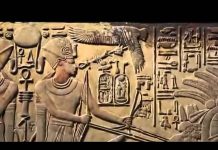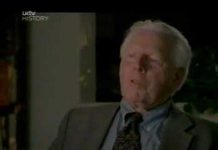“AnOther Story Of Progress” takes viewers on a compelling and thought-provoking journey that challenges the prevailing notions of progress and civilization. This captivating documentary explores a range of pressing global issues from a primitivist perspective, shedding light on environmental destruction, indigenous resistance, and social insurrection. By featuring prominent primitivist thinkers such as John Zerzan and Layla AbdelRahim, as well as activists Vandana Shiva and Ana Maria Lozano from Justicia y Paz, the film presents a diverse array of voices that contribute to a critical analysis of Western civilization.
One of the documentary’s strengths lies in its combination of raw home video-camera footage and carefully selected excerpts from various documentaries. This blend of personal and archival material serves to amplify the central thesis of the film: Western civilization is inherently violent and destructive, necessitating a resolute fight against its prevailing forces. By drawing on multiple sources, “AnOther Story Of Progress” reinforces its message, compelling viewers to confront the consequences of our actions and question the foundations upon which our society is built.
The film delves into the environmental impact of human activities, revealing the destructive tendencies embedded within Western civilization. It shines a spotlight on the devastating consequences of rampant industrialization, resource exploitation, and pollution. Through vivid imagery and compelling narratives, the documentary highlights the urgent need for change and prompts viewers to consider alternative ways of living in harmony with the natural world.
Furthermore, “AnOther Story Of Progress” places a significant emphasis on indigenous resistance and activism. It showcases the struggles of marginalized communities around the world, who have long been on the front lines of resistance against the encroachment of Western civilization. By amplifying their voices and experiences, the film emphasizes the importance of recognizing and respecting indigenous knowledge, traditions, and land rights. It challenges viewers to question the dominant narratives that dismiss or undermine these vital perspectives.
Central to the documentary’s exploration of resistance is the inclusion of primitivist thinkers and activists. Figures like John Zerzan and Layla AbdelRahim offer compelling critiques of modern society, highlighting the alienation, inequality, and ecological devastation that they argue are inherent to the current systems of power. Their thought-provoking perspectives invite viewers to question the foundations of our social and economic structures and consider alternative visions of society that prioritize sustainability, egalitarianism, and a reconnection with nature.
“AnOther Story Of Progress” does not shy away from presenting a stark and challenging narrative. It prompts viewers to confront uncomfortable truths and reevaluate their own roles within the dominant culture. By showcasing the destructive consequences of Western civilization, the documentary aims to inspire individuals to take action and contribute to the pursuit of positive change. It urges viewers to consider how they can personally engage in efforts to protect the environment, support indigenous rights, and foster more sustainable and equitable communities.
In conclusion, “AnOther Story Of Progress” is a compelling documentary that confronts the prevailing narratives of progress and civilization. By highlighting the destructive nature of Western civilization and centering the voices of resistance, the film encourages viewers to critically examine their own beliefs and actions. It serves as a call to action, challenging us to reimagine and work towards a more just, sustainable, and inclusive world.

































